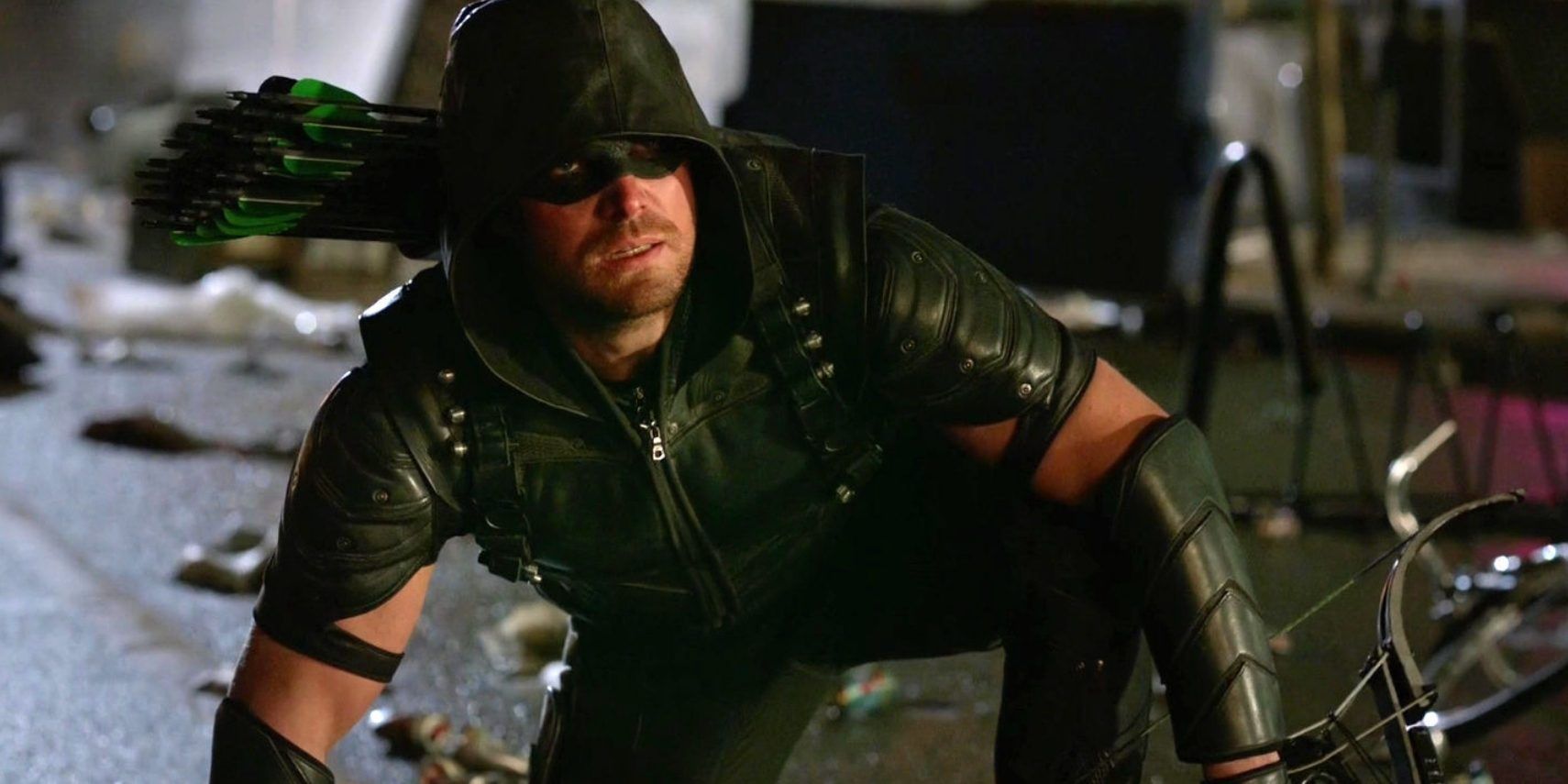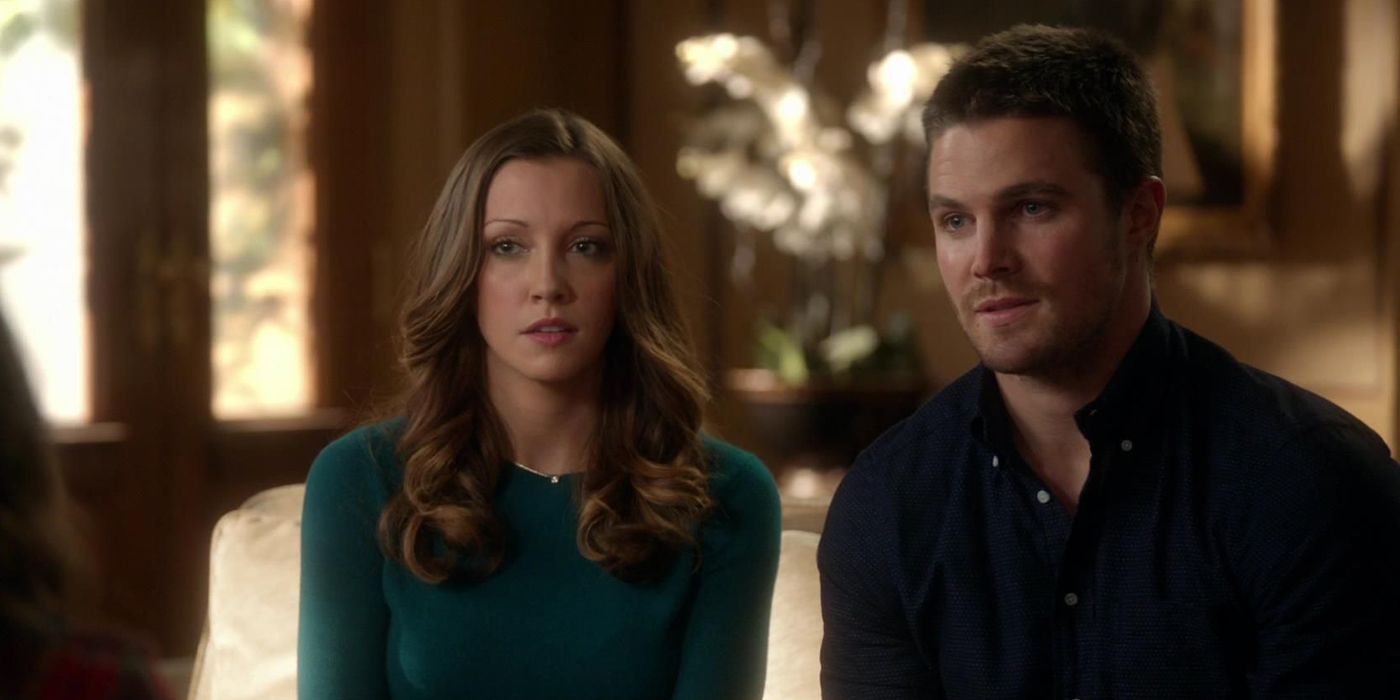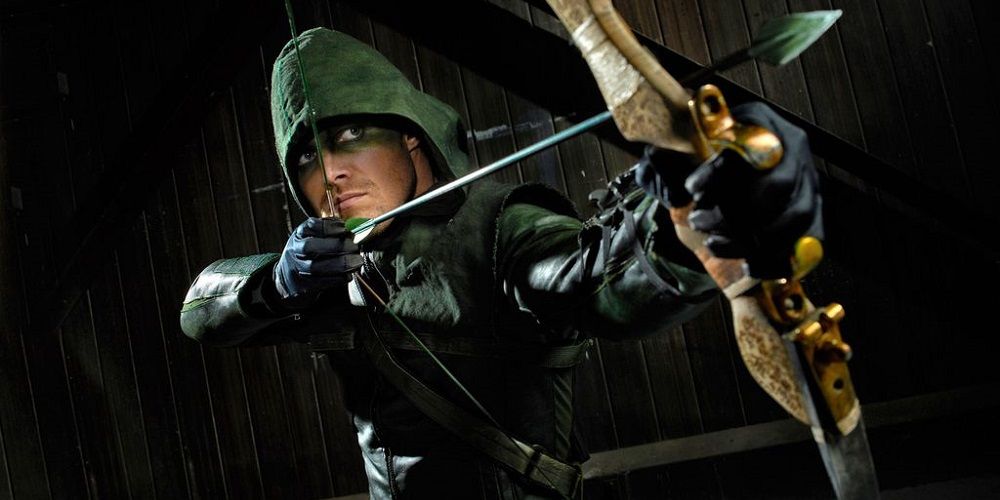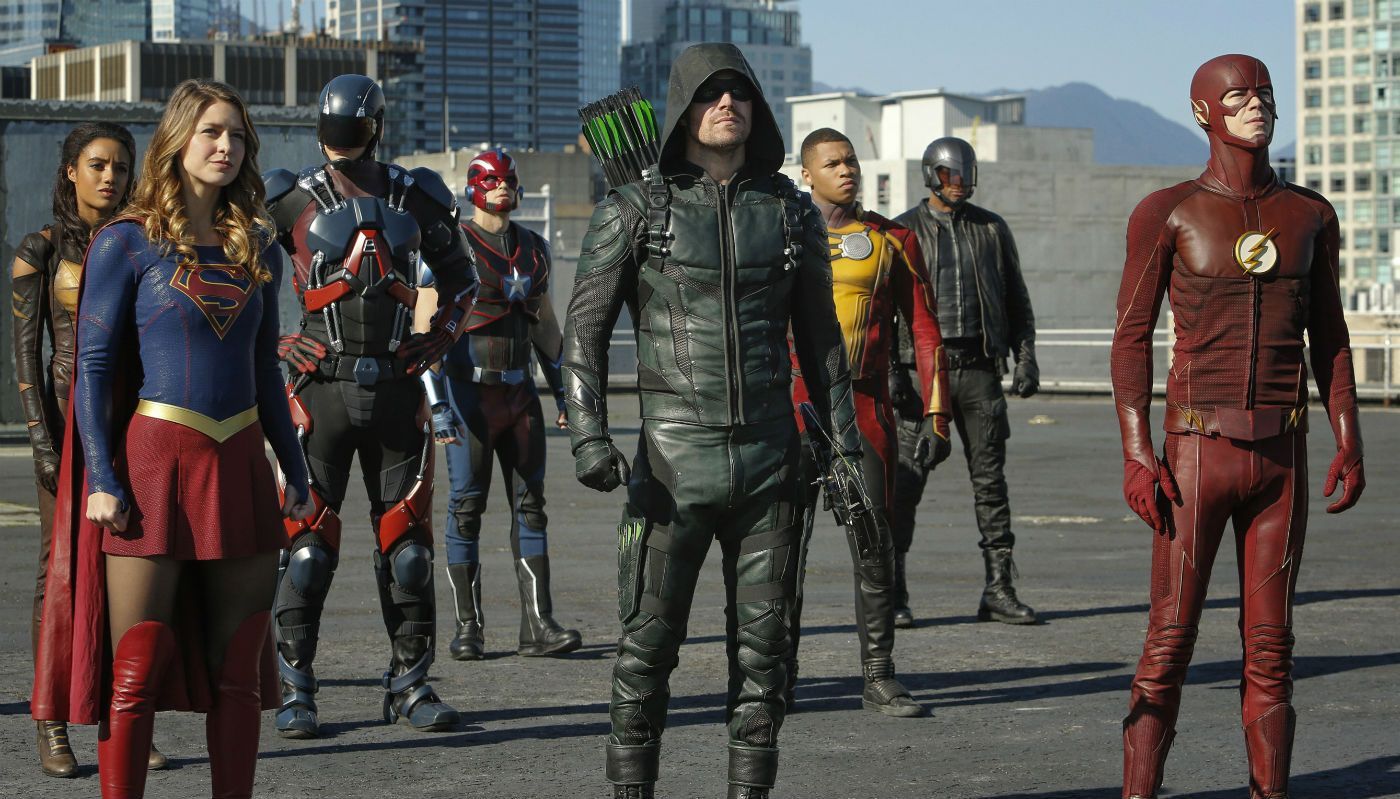It's time to say farewell and thanks for the memories. Yesterday, Arrow star Stephen Amell announced that the series will end with its upcoming abbreviated eighth season. It brought to a close several weeks of rumors about the show's status, allowing some form of closure for its fanbase.
It's disappointing but perhaps the right thing to do, all things considered. Amell elaborated that the decision has been in the pipeline for a while now, but it's time to end the series on a high rather than trundle along aimlessly. He left a glimmer of hope that Season 8 will not be the last time he wears the infamous hood, however, as he stated that there might be a possibility for his character to appear in the other shows down the line.
RELATED: Why The CW Decided to End Arrow With Season 8
Despite its remarkable run, Arrow isn't the longest-running live-action comic book TV series; that distinction belongs to Smallville. Even so, it did something that no other program before it was capable of doing: It launched a universe, which demonstrated how much bigger superhero TV could be.
Comic book TV series had been around for decades before the idea of Arrow was even conceived. Whether it was 1966's Batman, The Incredible Hulk in the '70s, or even Lois & Clark: The New Adventures of Superman two decades later, these shows often carved out their own niches and audiences. Their biggest struggle, though, was creating a platform for spinoffs. Smallville famously tried to act as a springboard for other superhero series, but it battled to do so because of network politics and the failure to commit to plans.
Then, a little show called Arrow zipped onto the screen in 2012. When it debuted, it was a risky project for The CW. For one, Amell was an unknown quantity at the time, and he'd need to carry the show as its lead. Also, Green Arrow wasn't exactly a major DC character that fans were clamoring for on the small screen. And finally, the show took massive liberties with canon, as it turned Oliver Queen into a Batman-esque character that brooded and growled like the Joker had stolen his Batmobile's spare wheel.
Yet, Arrow defied all expectations, averaging 3.6 million viewers per episode. As a result, the show received numerous awards and accolades while it broke the barrier to appeal to a larger audience. No one could've seen it coming, but the risk paid off as Arrow became one of The CW's biggest hits.
NEXT PAGE: The CW Strikes Gold with First Arrow, Then The Flash
The second season solidified that it wasn't all luck as it upped the ante and delivered even better storylines, with Manu Bennett's Slade Wilson/Deathstroke cementing himself as one of the best TV villains in recent years. More importantly, the eighth episode, titled "The Scientist," introduced a certain Grant Gustin as Barry Allen/Flash. And this is where Arrow hit the proverbial bullseye.
Due to Gustin's popularity on Arrow, The Flash was greenlit, becoming its own success story. The network execs witnessed how easy it actually was to create spinoffs of Arrow and realized the potential goldmine on their hands. Thus, further series were optioned. While it could've nosedived spectacularly, it surprisingly didn't. An interconnected universe, affectionately known as the Arrowverse, was created where all these characters and storylines played in the same sandbox, almost effortlessly.
The ambitions of the Arrowverse didn't stop there, though, as it went for broke with its yearly crossover events that linked all of its shows together in an overarching, large-scale storyline. The simple fact that film studios, with bigger budgets and resources, struggle to create cohesive universes tells you how incredibly difficult it is. The Arrowverse prevailed, however, producing momentous and epic events that blew the fans' minds and left the rest of the TV industry wondering how it could replicate this same accomplishment.
Of course, Marvel entered into a deal with Netflix to do a similar thing as the Arrowverse. This attempt would go on achieve various degrees of success, imitating what Arrow did by introducing characters in a show then spinning them off into their own series. That said, it's arguable if it ever matched the same impact considering the untimely conclusion of the Marvel-Netflix relationship this year.
RELATED: Arrow Cast Reacts to News of the Show's Final Season
Closer to home, the DC Universe streaming service launched its own interconnected world, also utilizing similar methods as those employed by the Arrowverse. It doesn't do any harm that Greg Berlanti, one of the major brains behind The CW's superhero programming, is involved here as well and brought all his experience with him.
All things considered, the current state of superhero TV owes its existence to Arrow. If it hadn't broken through and done what it did, the small screen wouldn't have been as comic book-mad as it is right now. It might not have been to everyone's tastes, and its quality certainly fluctuated throughout the seasons, but its influence can never be understated. Arrow changed the genre for the better, and it'll be remembered as a game changer in the history books.




